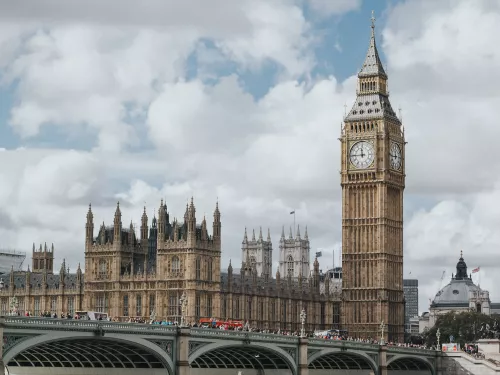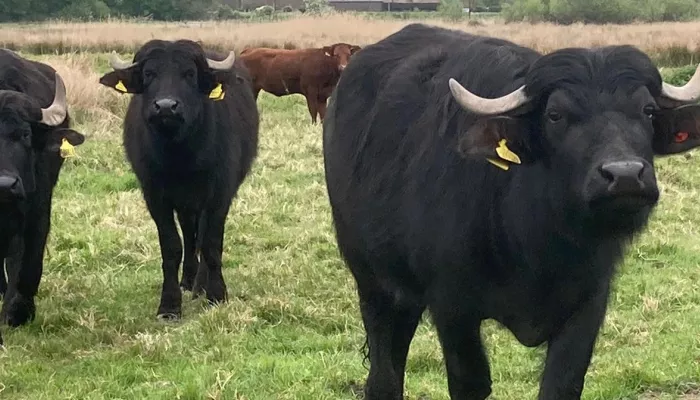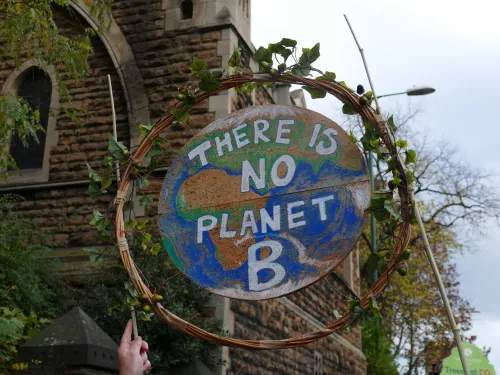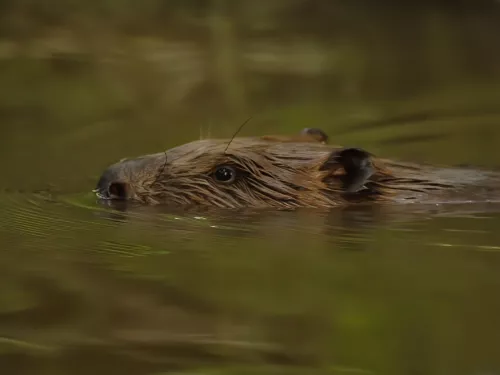In Ham Fen, Kent’s last remaining ancient semi-natural fenland, the trust have been using water buffalos and beavers to create thriving wetlands. The water buffalo open up the scrub and reedbeds, creating pools and puddles which become home to amphibians, fish and invertebrates whilst the beavers create dams, flooding parts of a river attracting insects and fish.
The introduction of bison, a joint wilding project with Wildwood Trust, at West Blean and Thornden Woods involved work to maintain existing and establish new ponds. Re-wetting the Blean, a partnership between the trust and RSPB is a re-wetting initiative aimed at making woodland more resilient to climate change. The work has seen ponds restored which encourages wildlife to thrive and could help prevent woodland fires from spreading. The ponds not only provide the bison with the 180 litres of drinking water they need each day, but have become home to new wildlife with rare dragonflies spotted in the area.
At Hothfield Heathlands grazing sheep, cattle and ponies have been used to reduce the risk of fire. The area has a large amount of purple moor grass which once dried out become a potential tinderbox for fires to break out. By eating the gorse, purple moor grass and treading down bracken the animals make the site far more fire resistant.
Kent Wildlife Trust, Director of Conservation, Paul Hadaway said: “Firstly we need to acknowledge that the current high temperatures and droughts we are experiencing are not the result of normal weather patterns but are indicators of the impacts of climate change we are now actively experiencing. The role of nature in tackling this is fundamental and overlooked. Data from across the globe shows that 30% of land being kept as natural habitat with functioning ecosystems will allow nature to fight back against the climate crisis.
“If you take Ham Fen as an example, the reserve had been historically drained and continues to be under pressure from water abstraction. The team have established a reed swamp habitat and increased the volume of water retained and stored on the site by creating new wetland features, this has allowed us to provide the right environment for the water buffalo and beavers to thrive.
“We also know that native woodlands are far more resistant to fire than conifer plantations so by encouraging native species to grow and using bison to engineer the woodland in a natural way, like we have in West Blean and Thornden Woods, we can create an environment less at risk to the threats posed by climate change.
“Despite minimising the risks, nature reserves remain vulnerable to the threat of fire. Our reserves have large areas of grass and heathland that would be destroyed if a fire were to break out and it would also devastate the wildlife in the area. We ask that people do not bring BBQs to our reserves. They should also be mindful not to discard of lit cigarettes or leave glass bottles, as they can trigger a fire.
“We fully support a ban in the sale of disposable BBQs, a significant number of the hugely damaging wild fires we've seen across the country in recent weeks are directly attributable to disposable BBQs. They have caused tens of thousands of pounds of damage to crops, destroying hundreds of acres of habitat and killing wildlife.”




